Chesney and Wolfe, were a British television comedy screenwriting duo consisting of Ronald Chesney and Ronald Wolfe. They were best known for their sitcoms The Rag Trade, Meet the Wife (1963–66), On the Buses (1969–73) and Romany Jones (1972–75). When their partnership began in the mid-1950s, Chesney was already known to the public as a harmonica player.

Stan Laurel was an English comic actor, writer, and film director who was one half of the comedy duo Laurel and Hardy. He appeared with his comedy partner Oliver Hardy in 107 short films, feature films, and cameo roles.

On the Buses is a British television sitcom that was broadcast on ITV from 1969 to 1973. It was created by Ronald Chesney and Ronald Wolfe, who wrote most of the episodes. It spawned three spin-off feature films and a stage version. Despite the writers' previous successes with The Rag Trade and Meet the Wife with the BBC, the corporation rejected On the Buses, not seeing much comedy potential in a bus depot as a setting. The comedy partnership turned to Frank Muir, Head of Entertainment at London Weekend Television (LWT), who loved the idea; the show was accepted, and despite a poor critical reception became a hit with viewers.

Reginald Alfred Varney was an English actor, entertainer and comedian. He is best remembered for having played the lead role of bus driver Stan Butler in the LWT sitcom On the Buses (1969–73) and its three spin-off feature films. Having performed as a music hall entertainer, Varney first came to national recognition as factory foreman Reg Turner in the BBC sitcom The Rag Trade (1961–63). He appeared in further sitcoms including Beggar My Neighbour (1966–1968) and On the Buses stardom facilitated overseas cabaret tours.

Michael Anthony Robbins was an English actor and comedian best known for his role as Arthur Rudge in the TV sitcom and film versions of On the Buses (1969–73).
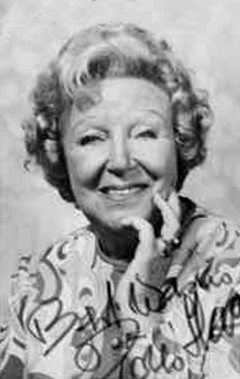
Doris Breamer Hare MBE was a Welsh actress, comedian, singer, and dancer best known for portraying Mabel Butler in the British sitcom On the Buses and its film spin-offs, after replacing the original actress Cicely Courtneidge.

Our Wife is a 1931 American pre-Code Hal Roach comedy film starring Laurel and Hardy. It was directed by James W. Horne and released by Metro-Goldwyn-Mayer.
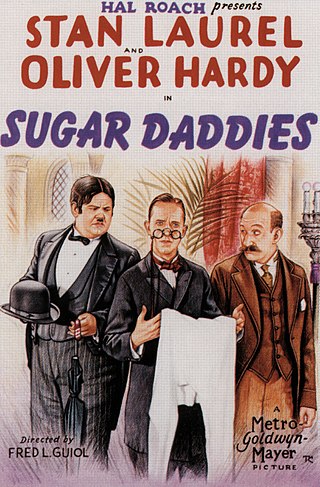
Sugar Daddies is a silent comedy short film starring Jimmy Finlayson, Stan Laurel and Oliver Hardy prior to their official billing as the duo Laurel and Hardy. The team appeared in a total of 107 films between 1921 and 1951. The film is directed by Fred Guiol and Leo McCarey.

Slipping Wives is a 1927 American silent short comedy film starring Priscilla Dean, Stan Laurel, and Oliver Hardy prior to their official billing as the duo Laurel and Hardy. The team appeared in a total of 107 films between 1921 and 1951. Priscilla Dean was a popular silent film star.

Ann Harrison McCall, professionally known as Anna Karen, was a British actress best known for playing Olive Rudge in the ITV sitcom On the Buses from 1969 to 1973 including its film spin-offs and stage version and Aunt Sal in the BBC soap opera EastEnders on a recurring basis from 1996 to 2017. She also reprised the role of Olive Rudge in The Rag Trade from 1977 to 1978, while her film roles included parts in two Carry On films: Carry On Camping (1969) and Carry On Loving (1970).
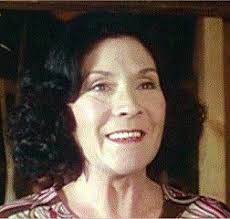
Queenie Watts was an English actress of film and television, as well as an occasional singer. She was noted for her broad cockney accent.

On the Buses is a 1971 British comedy film directed by Harry Booth and starring Reg Varney, Doris Hare, Michael Robbins, Anna Karen, Stephen Lewis and Bob Grant. It was the first spin-off film from the TV sitcom On the Buses and was followed by two further films, Mutiny on the Buses (1972) and Holiday on the Buses (1973).

Mutiny on the Buses is a 1972 British comedy film directed by Harry Booth and starring Reg Varney, Doris Hare, Michael Robbins, Anna Karen, Stephen Lewis and Bob Grant. It was produced by Ronald Chesney and Ronald Wolfe for Hammer Films. The film is the second spin-off film from the TV sitcom On the Buses and succeeded On the Buses (1971). It was followed by a third film, Holiday on the Buses (1973). Mutiny on the Buses came 17th in the 1972 box office.

Holiday on the Buses is a 1973 British comedy film directed by Bryan Izzard and starring Reg Varney, Doris Hare, Michael Robbins, Anna Karen, Stephen Lewis and Bob Grant. It was produced by Ronald Chesney and Ronald Wolfe for Hammer Films, and is the third and final spin-off film from the ITV sitcom On the Buses. It succeeded the films On the Buses (1971) and Mutiny on the Buses (1972). A fourth film was planned but cancelled.

The first series of On the Buses originally aired between 28 February 1969 and 11 April 1969, beginning with "The Early Shift". The series was produced and directed by Stuart Allen. The designer for the first three episodes was David Catley, and Andrew Gardner for the rest of the episodes. All the episodes in this series were written by Ronald Chesney and Ronald Wolfe.
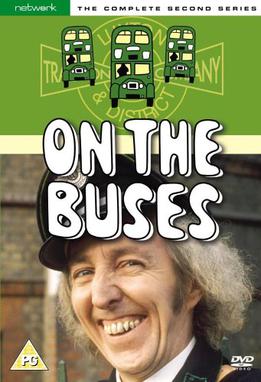
The second series of On the Buses originally aired between 31 May 1969 and 5 July 1969, beginning with "Family Flu". The series was produced and directed by Stuart Allen, and the designer was Andrew Gardner. All the episodes in this series were written by Ronald Chesney and Ronald Wolfe.
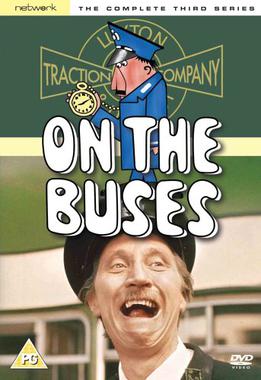
The third series of On the Buses originally aired between 2 January 1970 and 27 March 1970, beginning with "First Aid". The series was produced and directed by Stuart Allen for the first ten episodes. The last three episodes were directed by Howard Ross and produced by Stuart Allen. The designer for the series was Andrew Gardner. All the episodes in this series were written by Ronald Chesney and Ronald Wolfe.

The fourth series of On the Buses originally aired between 27 November 1970 and 21 February 1971, beginning with "Nowhere to Go". The series was produced and directed by Stuart Allen and designed by Alan Hunter-Craig. All the episodes in this series were written by Ronald Chesney and Ronald Wolfe.

The fifth series of On the Buses originally aired between 19 September 1971 and 26 December 1971, beginning with "The Nursery". The series was produced and directed by Derrick Goodwin and designed by Alan Hunter-Craig. All the episodes in this series were written by Ronald Chesney and Ronald Wolfe except for episodes thirteen and fourteen which were written by Bob Grant and Stephen Lewis.

The sixth series of On the Buses originally aired between 20 February 1972 and 2 April 1972, beginning with "No Smoke Without Fire". The series was produced and directed by Derrick Goodwin for episodes one, four and six and Bryan Izzard for the other episodes. The series designer was Alan Hunter-Craig. Episodes one, three, four and five were written by Bob Grant and Stephen Lewis. Episodes two, six and seven were written by George Layton and Jonathan Lynn.



















